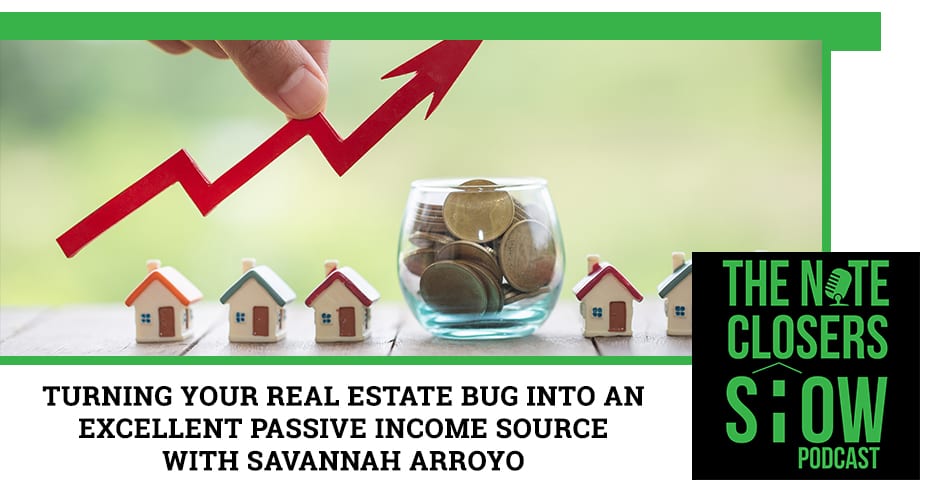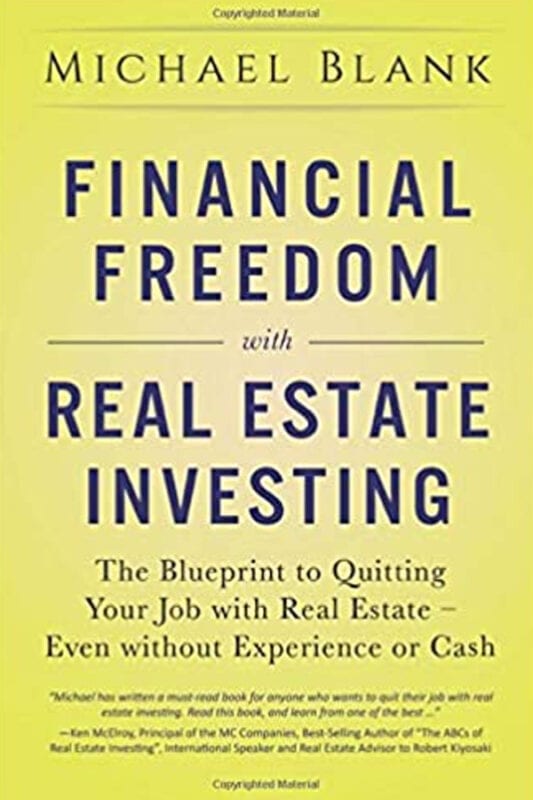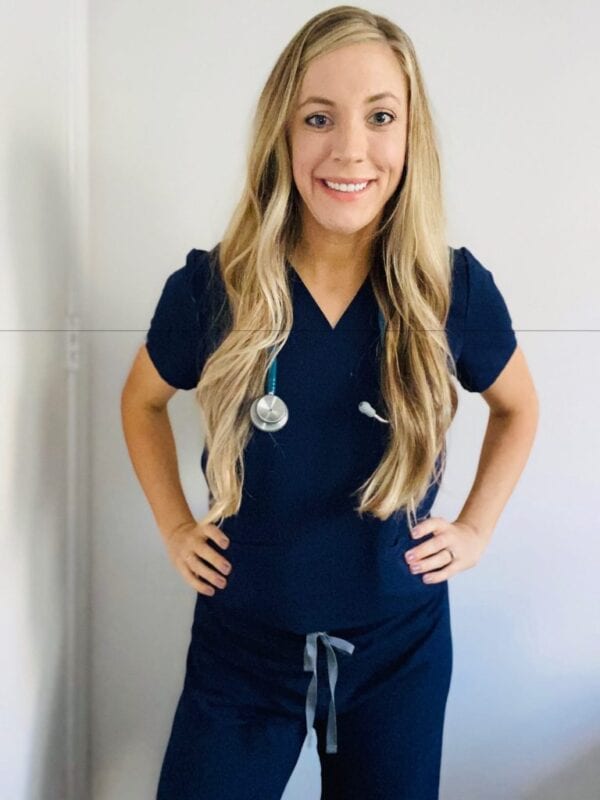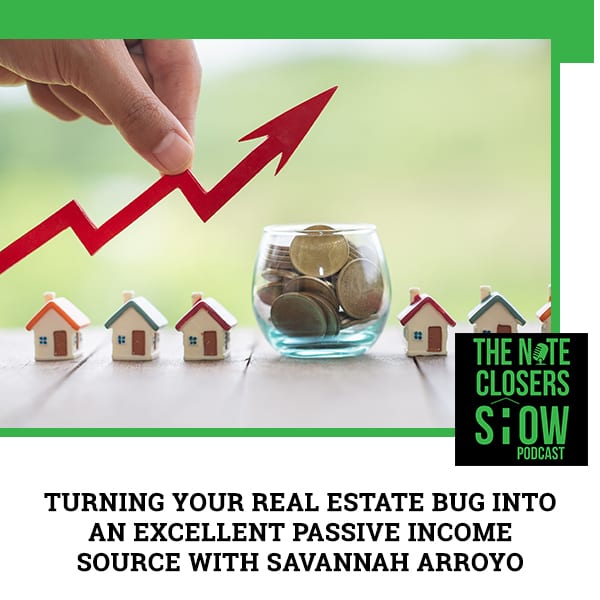
Most people get the real estate bug and become addicted to its concept but don’t actually make a move for it because of its seemingly overwhelming nature. But with the right strategies and planning, you can turn this into a passive income source, giving you a chance to hustle away. Scott Carson talks with Savannah Arroyo, dubbed as the Networth Nurse, about her journey as a new real estate investor and what she had done to find success in her first year, hitting a nice multi-family deal in Oregon. Savannah explains how she leveraged the power of the internet to bring her real estate venture across other states and even build her own brand through YouTube and podcasting. She also shares how she balances her life as a full-time real estate investor with her role as a mom, wife, and registered nurse.
—
Watch the episode here
Listen to the podcast here
Turning Your Real Estate Bug Into An Excellent Passive Income Source With Savannah Arroyo
Maybe you guys haven’t heard me talk much about how we have a big passion for helping the past and present military, our veterans and stuff like that. You’ve also maybe not heard the fact that we do love first responders, nurses, doctors, EMS, fire and safety, and police officers out there. If you didn’t know this, we love to comp those people in our workshop. I’m always excited to see somebody taking that next step. Maybe you don’t know this but my mom was a registered nurse who went back to college years after high school to become an RN and worked for 30 or more amazing years in children’s hospitals and everything. I’ve got a big heart for nurses. My step-sister and cousin are nurses. Nurses all throughout my family.
When a buddy of mine reached out to me and said, “I had an amazing investor on my show who’s doing some cool stuff. She’s a nurse. She’s rocking. She’d be a great guest for your show.” I was like, “Yes.” I’m excited to have a special guest. She is a real estate agent and she’s got such a great story. She’s a full-time registered nurse. She helps manage multiple departments at a hospital in LA, California and she uses her skills and experience in healthcare operations to complete complex real estate deals. Being a nurse and being medical, it’s a lot juggling different balls. It’s a lot like real estate here. She completed a real estate syndication deal while working full-time as an RN during the pandemic. If you don’t think you have time to get things done, she’s going to prove you wrong. I am honored to have someone who is known as The Networth Nurse, Savannah Arroyo to join us in the show. What’s going on Savannah? How is it going?
I’m super grateful to be here. How are you?
I’m doing great. I love what you’re doing. I want to throw this out there for you. You’re doing deals. You’ve got an interesting story and we’ll dive into how you got started. How many average hours per week do you think you’re working as a nurse especially now with everything going on?

Real Estate Bug: People in real estate are transparent with their numbers and not afraid to talk about it.
I’m in management, so I work Monday through Friday because I do oversee different departments. I am on call on the weekends but not expected to be there. Most of my departments are surgery-type procedural areas so we run Monday through Friday. Although when we’re on call, we do have to come on the weekends. I’m doing about 40 hours a week there. I have two little ones at home so I’d make it a point to leave there and be here with them.
Has it always been that way as a nurse or did you put in a lot of hours beforehand? Let’s talk about your journey to where you’re at.
No, I used to work a lot more hours as a nurse. I graduated from Sacramento State, got my Nursing degree up there, worked in a couple of different departments, different specialties, moved down to Los Angeles and got my Master’s degree. When I moved down here, I was determined to buy a house. Everyone from up in Northern California thought I was crazy moving down to LA. I’ll never be able to afford a house. What are you doing? I worked two jobs for almost a year double shifts to get the down payment for that first house. I’d wake up, go to my surgery center from 6:00 AM to 2:30. I’d come home to nap and work from 7:00 PM to 7:00 AM. I did not miss one night a week for a year to save up to buy a house.
How big was that down payment you had to pay the first time?
Because it was my first home, I got in with 3% down, so about $30,000. I had to pay off a car loan before that to get the debt-to-income ratio as well, but definitely worth it. That house is paid off. I pulled out a second mortgage on it to get started in real estate investing at the beginning of a year so it’s paid off tenfold.
That’s one of the great things. She’s got an amazing YouTube channel you need to check out called The Networth Nurse. Go over there and hit the subscribe button. She shares some great stories and I love what you’re doing there. In your story, I remember I was watching you and we’re like, “Okay.” Besides buying your first house, what made you want to take that next step as a crazy real estate investor? What made you do that?
Real estate always appealed to me because you hear about people doing it. It seems a little far-fetched and out of reach especially if you’re working a full-time job. It’s like, “How am I going to do that?” You hear about flipping and I’m a big fan of HGTV, so I’m following that. It was working with an amazing lender that proposed the opportunity to me at the beginning of a year when I went to refinance my house. My lender was like, “Do you know that your house has gone up over $100,000 in equity? You can pull this money out and use it for investments.” That idea was so foreign to me I’d never heard of that. It sounded too good to be true. It was working with great people in the industry and he shined the spotlight on that and I went out and did it.
You pulled some money out and used that to buy a couple of properties or down payments on other properties? What was your thought on what you were going to do with that money?
We bought a couple of single-family homes not here in LA. The price for entry is a little high here. We were exploring some different markets. I’m a podcast junkie and I was devouring all the books I could. We invested over in Georgia, Atlanta. We bought a couple of townhomes over there. The more I was listening to podcasts and talking to people, I heard about multifamily and people saying they wish they would have switched over sooner. I jumped full force into multifamily.
You’ve invested in an apartment complex and bought one. What was that like?
We bought an apartment complex. My husband owns the business with me, so we purchased our first apartment complex. We syndicated it out to family and friends. It was our first multifamily deal.
Where is it located? Do you mind sharing some of the numbers or the deals behind it?
That one is up in Oregon. We have family up there so we had boots on the ground. We were more familiar with the area. I hadn’t heard about a lot of people investing up there. I know it’s one of the few states with rent control so it automatically deters a lot of investors, to begin with. We started working with this rock star broker up there who started sending us off-market deals with strong value add opportunities and we found one that offered great returns. We couldn’t ignore it. It was a great deal so I flew up there, checked out the property, vetted out a property manager and a couple of different lenders and built a solid team up there. I got it syndicated out, raised some money and got it under contract and now it’s ours.
Congratulations, kudos. I love stories like that. How big? How many units with your apartment complex?
It’s a twelve unit. It has the option to turn a storage space into a thirteenth unit so that’s skyrocketing in our NOI. That’s a big value add part to this deal. It will be thirteen units when we’re complete.
When you look at it, it sounds like you’ve got a lender to help finance a big chunk of it and the remaining purchase was raised among family and friends. Is that correct?
Yes. We raised $200,000 for it.
How was that? Because a lot of people are scared to have those money conversations with friends and family.
That’s another thing I’ve learned getting into the real estate community. With friends and family, it’s sometimes a little taboo to talk about money and people don’t feel comfortable with it. It seems a little weird and people aren’t as open and honest. You jump into the real estate community and people are in your face with their numbers, what they’re getting, what their returns are, and it’s so great because people are transparent and it’s not a weird thing to talk about.
Getting over that hurdle especially family and friends who aren’t in the real estate investor mindset of being super open about that stuff can be a little bit difficult especially when you’re talking about tapping into different sorts of capital like a HELOC on your home or pulling from your retirement account. That stuff is safe and people’s little nest egg so they don’t like messing with it to invest in real estate when those are sometimes the biggest opportunities that you can pull from. It’s education at that point. We spend the time educating people who want to invest with us. We focus on building that relationship and we’re so transparent with everything we’re doing in the deal and that goes a long way.
I have to give you a bunch of kudos because I’ve taught many investors in the last few years. There’s maybe 5% of people that will do anything no matter what it is, apartments or notes. They’ll pull the trigger on anything. You went from buying your first house to buying a couple of investment properties across the country in Georgia around Atlanta. Let’s talk about that and we’ll get back to the apartment and syndication. That’s where a lot of people get scared, “That’s not in my backyard. I can’t touch it and see it every day.” Did you have any of those trials and tribulations when you were beginning?

Financial Freedom with Real Estate Investing: The Blueprint To Quitting Your Job With Real Estate – Even Without Experience Or Cash
Yes, we definitely did. It was a big jump. Honestly, that was something that we didn’t talk about a lot with our family and friends because we didn’t want to hear people saying, “No, you shouldn’t do that. That’s super risky,” and that sort of thing, but when you listen to the podcast and hear other people talking about it, people are doing it and making it work. There’s technology now that makes every part of that aspect and that process so easy. It’s a no-brainer especially because we’re living in LA and honestly it was such a hurdle of being like, “We want to invest but LA is crazy expensive. How can we do it?” We tried to navigate around all the obstacles in our path and investing in another state was our best option in getting started with this.
You’re only a 3 or 3.5-hour flight from Atlanta.
Maybe 4.5 depending on the plane.
Maybe four depending on the day. In Austin, I say two hours on any Southwest flight. Basically, two hours from 95% of the country. That’s the thing. How long from the time that you decided you were going to do something out of state did you decide on Georgia? Timing-wise, when you decided on Georgia, did you find a couple of properties of townhomes in Georgia?
Short months, maybe even days. We were go-getters with us. We sat down. The main thing was in the beginning when we realized we wanted to do this. We had to find our why, which is we have two young daughters. My husband and I both work full-time jobs. It was we could put 100% into this real estate stuff and put ourselves in a position even 5 or 10 years down the road where we’re able to have that time freedom to spend with our girls more than we have now.
We were like, “We’re putting everything we can into this because we want that for ourselves,” and we knew it would pay off with real estate. We were so focused on our why that it made it easy to make that transition of this is what we need to do. We set our goal and now we need to take the steps to get there. We have a couple of friends over in Georgia so we called people over there. I got on BiggerPockets and started vetting out realtors and property managers over there. I started networking, talking to people and made it happen.
The same people that are in LA, the same people are everywhere in the country and those are one of the things. You said BiggerPockets and meetup groups. There are many great professionals across the country and great ways to vet people these days. It’s a lot easier than it was even a few years ago. What does your husband do? Do you all have the same type of field in the medical field or is he doing something different?
He does benefit, so he’s a benefits consultant. It’s similar but not.
It’s nice though because who had the real estate bug first? Was it you or was it him?
It was me and it was because I was on maternity leave with my second daughter at home learning about investing and watching some YouTube channels. Once I listened to it, every walk I was on with my daughter, I had BiggerPockets in my ears. I was listening to audiobooks and all these podcasts. My husband would come home from work and I’m like, “We can do this.” He’s like, “Slow down.” I caught the bug bad.
It’s always nice when you have couples or spouses that are on the same track and goal and they’re supportive. Not everybody is always like that in some cases. Some people get the entrepreneur bug or the real estate bug and the other one is like, “Oh, no.” Some people’s families aren’t the most supportive because they’re trying to protect you because they come from a place they don’t know. It’s great seeing it. Let’s bring it back a little bit. You bought a couple there in Georgia and you found people. You’re like, “Let’s get rock and rolling.” Were they investment stock properties that need some work? Did you use conventional financing to finance or private money? How do you take those down?
We were looking all over. We were thinking about doing the Bird Strategy. We got that book. We’re on that and we were like, “Do we want to oversee a huge renovation across the country?” We felt that wasn’t for us so we connected with a company that does new build-to-rent projects so they build it and they manage it. Personally, we bought our home here in LA and it was a new build. We love it. We’ve owned it for years now. We’ve never had any issues with it. It’s been so awesome to have a new house and it was in an appreciating neighborhood so we reap the benefits of that.
We were planning to do the same thing in Georgia so we bought in a market that was up and coming. A new build townhome, got a renter in it before it was even built with a year lease in our management company. Because they’re the ones building it, it makes sense for them to manage it because they have more interest in it. They’re going to do a good job at building it because they’re going to be managing it for how long. We felt that those interests were aligned.
They built it but did you finance it with bank financing or private money?
The financing company works with their favorite lenders so they recommended a large banker that we vetted out and we liked the guy. He had personally invested in these types of deals and his mom had so it felt right. They offered us to get in at 15% down, which is great, which allowed us to buy two even though we’re paying that PMI, it still was worth it to get the two to stretch that money and make it work.
It’s a nice thing too. In an investor style, a second home or second one is at 85% LTV is pretty good especially the rates being low. That’s one of the beauties of what’s going on. That’s smart and smart thinking. They’re occupied and they’re being built out. What’s the situation of those?
They’re occupied. They had renters sign the lease before they were even built.
That’s a happy dance for you.
They took care of everything for us. It’s been great and we have an online portal, which goes to show the managing from across the country. I have an app on my phone and I get the maintenance requests in there through the app and I see them. One was like, “Something leaked with the washing machine and it caught my eye.” I’m like, “What’s going on?” I called over there an hour later and they had already had it handled. Someone was going out and they have completely taken care of it. They’re like, “Don’t even worry about it. We handled it.” We’ve had a great experience with them and it was a big community that they’re building because we bought some of the first homes in them. They’re still selling the houses and we found out that our same house is now selling for $12,000 more each. Even within the short amount of time we’ve owned them, the equity is $24,000 together.
You’ve got to love that appreciating market. That’s always a good thing when you’re buying and taking care of it. That’s awesome. You buy those, you decide you’re going to get into apartments after hearing some podcasts, listening, studying and making that step. Some people never make that jump from single-family to commercial out there. Besides podcasts and books, who was somebody that you learn from or somebody that you’re like, “I like the way he or she does what they’re doing. I’m going to model my business after them.”
There are a lot of good multifamily syndicators. Personally, I read Michael Blank’s book, Financial Freedom, but there are a lot of great ones out there doing it. His was the first one I read. We signed up for a coaching and mentoring program too because we were making that shift and because it was such a bigger piece of property, a big building that we were we wanted to make sure it was done right. We wanted to make sure all our underwriting was done right and raising capital from investors. Both of those aspects were semi-new to us and we wanted to make sure that we had someone looking over our shoulder and dotting our i’s and crossing our t’s. It was worth it for us to invest in something like that.
When you were talking with the bank to finance your apartment complex, how important was your experience versus your team’s experience on who you were hired to manage it? Did that come into planning?
It did. We ended up using a lender that was referred by the broker so because they had worked so closely together, they trusted us a bit and understood what we were doing. The thing with commercial is that they go a lot based on the building and what the building’s going to come. They don’t necessarily look too much at your personal financials. They run them and take it into consideration but they’re basing the loan heavily on the performability of the asset.
You’re basically a 1.25 debt coverage ratio in things like that, so it’s pretty normal. That’s a great tiny buy and that’s a hot asset class that’s doing well and banks feel good about the appreciation on the multifamily even with everything going on these days. Have you seen any difficulties? Oregon does have that rent control aspect of things. Has everybody’s been on time for you? Has anybody been late or dealt with COVID?
No. This building has had no delinquencies since the beginning of the year. It’s crazy.
That’s another happy dance.

Real Estate Bug: Real estate investors love telling what they’re doing, the secrets they’ve learned, and many tips and tricks.
The market in general up there was hit by COVID but the property manager that’s managing our properties, managing other properties in the area and she says that she’s not seen the delinquencies and that thing because of the COVID, so we felt comfortable getting into the deal knowing that we had to raise rents. That building had rents that were 18% below market so we raise those up to market within three years, which is aggressive but she went out to our property after we got it under contract and officially owned after closing. She went out and served the 90-day notice for rent increases and she said every single one of the tenants signed it and it wasn’t an issue.
They knew they were getting lucky undervalue there a little bit.
They were drastically under market. It was crazy.
Was the previous owner asleep at the wheel? Were they ready to move it? Were they elderly?
He was an older gentleman. He had owned it a long time. He’s down in San Diego, so he’s near to us. He owned different apartment complexes in the area. He honestly didn’t have the best bookkeeping which was a struggle with our lender at first. It delayed some aspects of the purchasing because the bookkeeping wasn’t good. He wanted 1031 in the land so he was motivated to sell.
Have you asked him if he’s wanting to sell any of his other apartments?
We have started that conversation. That was recommended to me by someone else in the real estate community and we are navigating that conversation.
You have done an amazing job in a short time for you and your husband. Kudos to you. You’ve got your why and your focus. You’re rowing the boat in the same direction to make some things. Is it your long-term goal eventually to replace what your guys are making on your full-time job to do this 100%? Do you think you’ll be working in the medical field for a long time and doing this on the side? What’s your game plan?
Yes, eventually. We both love our careers. I love nursing. It’s a huge spot in my heart. It would be hard to imagine now giving that up. I don’t think I’m ready for that. I love what I do. I love working. I’m a manager now so I love working with my caregivers even more than I love the patient care aspect of it. That part would be hard to give up. I don’t plan to do it anytime in the near future but definitely, we’re pushing forward in real estate to put ourselves in the position that it’s an option sooner rather than later.
Have you had any conversations with your coworkers, your doctors, your fellow nurses about what you’re doing? They’ve been keeping an eye on you. Have you had any of that kind of, “We’ve got another deal raising capital for some extra friends and coworkers,” or any kind of those conversations?
Yes. That’s a weird path to cross at first because they know me as a nurse. It’s hard for them to see me as doing something else.
Are there enough of the doctors that have a god complex? They have a hard time sometimes.
What do you mean by doctors have a god complex? I’ve worked with a lot of surgeons. There are a lot of great guys and gals out there but it is hard for them to see that in me at first. When I bring it up, it always catches them off guard. They’re like, “What do you mean?” Because I have two small young children that it’s like, “When are you finding the time to do this type of thing?” That’s usually the first question. I don’t binge Netflix half as much as I used to anymore but those conversations do inevitably come up because I’m so passionate about it and it’s what I’m doing when I’m not at work. I love it and it consumes much of my day in terms of what I’m listening to, reading and who I’m talking to. It does come up and it’s usually surprising but then a lot of people are intrigued by real estate. Usually, they’ll start asking questions like, “What are you doing? What’s this?” They haven’t heard of syndication so it’s a pretty fun process. I like it.
It’s definitely fun. Once you get the bug, it’s hard to get rid of it because as I say, you never retire from real estate. You’ve always been an investor of some sort. The thing I like from looking at what you’re doing, you’ve also done, I will say aggressively and I mean that in a compliment because a lot of people won’t take the time. You’ve put a website together to talk about raising capital, you started doing your YouTube videos describing what syndication is and what your focus is. Most people don’t do what you do in their first five years from what we’ve seen. That’s one thing I want to throw back out there. You decided to start doing some videos sharing what you’re doing to do to raise capital and get the word out on what you’re doing a little more. Have you decided it versus your husband or vice versa? What’s been the game plan with that?
All the above. I love that you use the word aggressive because I have been called that 1 or 2 times and I’m motivated. That’s what it comes down to. Honestly, I couldn’t do this without my husband. We bounce off all these ideas off each other. We’re partners in everything so having his support through this and having him on the same page is huge. It wouldn’t get done if that wasn’t the case. In terms of building the brand, I was wanting to connect with more people. Having a brand allows me to do that. Building this platform, being able to connect with other medical professionals especially and people interested in real estate, having this brand, my website and different platforms allow me to do that easier. That’s what I’m doing now to get the word out.
It looks like you’re spending 40 hours a week on your real estate stuff on the marketing side. Let’s be honest, how many hours a week are you putting in it? Are you putting a couple of days at night from the Gary Vee 7:00 PM to 2:00 AM thing or a couple on the weekend? What’s your schedule to mix it around?
I am still navigating this because this is something you can do 24 hours a day. Especially with social media, you can be doing it all night going on Facebook, joining groups and recording videos. It’s a 24-hour thing, so sometimes I will have to remind myself that I need to turn it off and I need to take a little break because I love it so much that I’m constantly doing it and it can be a little overwhelming. There’s always a running to-do list. There are always things that you could be checking off. Especially having young daughters, I make it a point to make time for them. I would say after I put the girls to bed around 8:00 or 8:30 I’m hopping on my computer looking at different things, knocking off things and looking at properties. We still underwrite a bunch of properties getting sent by brokers. We’re so curious about it that it makes it fun and it’s become a good hobby but turned into a career.
It’s become a united goal and that’s a beautiful thing. We’ve got students where their spouses feel like, “You’re spending more time in real estate than spending time with me?” Why don’t you get interested in it and we can do this together like what you are doing? Kudos to you. It’s so important these days because especially with COVID, a lot of people have not found those same goals or the same hobbies and drifted apart. You guys have definitely done an amazing job doing that and closing things out. How many deals do you think you looked at apartment-wise before you found the one that you pulled the trigger on?
My husband is in charge of the underwriting, although we would look at them all together. I’m sure he spent many hours in front of that Excel worksheet trying to make those numbers work. It’s probably 75, I’d say around that, give or take maybe 20. Even if you talk to other investors, they’re usually crunching. They say 100 deals to land 1. The thing about the Excel sheet too is you can make your numbers tell you any story you want to tweak them in any way that makes it look good for you.
It’s super important when you’re doing that to be patient because you don’t want to aggressively move things to make it work for you and you’re undercutting some of your budgets. Down the road, it over projects and it’s a huge problem. We’re patient with it but aggressive at the same time in terms of running the numbers, getting the deals, getting that funnel from brokers, having that relationship to get the off-market deals that are super important.
Is your goal with the apartment complex to hold on to it for a long time or hold on to it for 3 or 4 years and sell it off? What’s your long-term here? What’s your gameplay with it exactly?

Real Estate Bug: Don’t get into business with someone because you’re desperate to do a big deal or because you’re in it with them for years.
We built our exit strategy to sell in three years. That’s the amount of time it’ll take to renovate that unit, get it up and going, and raise rents to market value. That’s the timeline we gave our investors. None of us have a crystal ball and we can’t assume that everything is going to go exactly according to plan, but we feel pretty confident that within three years we can sell it to get those targeted returns for our investors.
The loan is good for longer than 3 years or was it 5 years?
It was 30 years, so there was an early sell penalty but we factored that into our numbers to make everything work.
I love this. This is refreshing. Somebody is taking action, taking time in their spare time. You’re shooting all these excuses. You can be in real estate, work part-time and make things happen and accomplish some big things in a short amount of time if you are taking action. Kudos to what you are doing. Let’s talk about what’s the next thing you’re looking at. You’re using your channel, you’re doing some YouTube videos, stories stuff and your marketing things. What’s the next project that you are looking to do? What’s the next deal?
It’s the same thing. Apartment complex and strong value add deals. We’re looking in Georgia, Oregon still because we have a great team over there. We have boots on the ground in Reno. I know Texas is hot but we’re looking at New Mexico because we’re favored on the West Coast but we’re still looking for strong value-add ideals. We’re looking and talking to investors. We want people to join our party and come invest with us and see what we’re doing so it’s building up.
What would you say looking back over the last year-plus? Has there been a mistake that you made that surprised you that you learned a lot from or learned something from?
Networking at first because it was my husband and I doing it. We were bouncing stuff off each other and doing it ourselves, and we didn’t jump into the real estate communities. I was on BiggerPockets but I wasn’t reaching out to other investors to see what they were doing. I was listening to the podcasts and reading the books but I wasn’t creating the conversations. Even me and you, the conversation we had before this interview, you’re showing me all these tips and tricks of different things that you can use in social media and stuff, and that is so invaluable. By networking with other investors, I’ve learned so much stuff like that. That’s valuable to the business, different investments and different things to consider. The thing about real estate investors is they’re passionate about it, that they love telling you what they’re doing, secrets they have that they’ve learned, and tips and tricks. I wish we would have started doing that sooner.
That’s the number one that they love. I wish I would have started sooner. 2020 eliminated that real estate meetup group networking that a lot of people get started going out to the local REIA club or the meetup group on a Tuesday night or Thursday night, and spend a couple of hours doing that work. Kudos to you for taking that step. A lot of people are introverted. They don’t want to ask questions because they don’t want to come across as ignorant. I say that the only dumb question is the one question you don’t ask.
I love that you said that too because when we initially started doing that, we were looking forward to the big seminars like going out of state and planning a trip and going to live events. We were looking at them and looking into booking. This COVID shutdown happened and that’s what put a halt on the networking and getting in touch with other people. Slowly, people started coming out with these Zoom meetups, and now there are breakup groups in them and it’s so awesome, the creativity that people have had to instill network and create those personal relationships with each other. Both of us now attend different networking groups and Zoom calls throughout the week and they’re awesome. It’s great.
It may not be the same thing as having a beer or a cup of coffee with somebody next to you, but it’s about as close as you can get to it for the most part.
We’re working with what we got at this point.
Looking at potentially if you had to think about five years from now, what would be a five-year game plan or goal that you have?
Building relationships with other investors, operators and LPs. Also, trying to figure out whose goals align with ours and creating valuable mutually beneficial relationships because you can do so much more as a team. It’s such a team sport in making those connections. You don’t want to get into business with someone because you’re desperate of wanting to do a big deal and joining with someone who has the capital because you’re in it with them for years. If it’s not the right fit, it’s going to be miserable. We’re trying to be aware of who we’re trying to talk to, network with, and build those relationships and we plan to build it through there.
Sometimes saying no is saying yes to sanity.
In all aspects of life, not only real estate.
It sounds like there’s a story there. That’s so awesome. I’m happy and excited for you. What’s your plan with your marketing side and your website? Are you looking to get booked on more podcasts or looking to speak more and leverage that stuff? What are you trying to do with that?
All of that. I’m booking some podcasts getting on here because personally, I know that’s how I got started, and that was the information that I held on to in terms of educating myself and seeing what different people were doing. Even now, I love hearing people’s stories. Everyone comes from different walks of life. No excuses. People everywhere are doing it. I love hearing about people’s hurdles and obstacles they’ve had to overcome to get it going. Listening to them is so motivating for me. I’m starting to do the podcast to give back in that respect and help people get something from my story. Also, build a presence on social media and connecting with other people.
It’s one of the best things. It’s like having a book. It used to be the calling card. It’s like, “I’ve got a book.” “Great.” I’m a bestseller on Amazon at 2:35 in the morning with everybody. For a podcast, it’s like, “I’ve got a podcast now.” We find out more of what’s going between the two eyeballs and the two eardrums by listening to somebody on a podcast. You hear the questions they ask and see what they’re going through whether it’s solo or how they interview. That’s one of the things that I love.
I love listening to podcasts too because it is powerful. The people listening are listening. It’s not like a Facebook video where they watch and they slide. They’re listening to 80% of what you’re doing. Kudos to you on that. We’ll have to spend some more time offline talking about some marketing tips on the podcast for you. It has been a pleasure to have you on here. For those that are reading this that want to reach out to you, what’s the best way to find out more and follow more along you guys’ journey?
You can find me at The Networth Nurse. My website is www.TheNetworthNurse.com. It’s the best way. It has all my social media handles. If you’re on YouTube, Facebook, LinkedIn, you can find me under The Networth Nurse and you can email me at Savannah@TheNetworthNurse.com.
I love it. You’ve got that branded down. It’s the little things. I have to tell you now to keep doing what you’re doing. Aggressive is a good term but also not being afraid to step outside your comfort level. Many investors struggled with that, “What if it does happen?” versus, “What is the best thing?” Kudos to you. Keep up the great work and we look forward to it. We’re going to have to have you on again at some point as the journey continues down that road there for you.
I’m looking forward to it. Thank you so much, Scott.
Thank you. Guys and gals, you can learn a lot. There are a lot of great learning nuggets to take to heart and what Savannah shared here on this episode. Don’t be afraid to learn. Use what’s between your ears to listen, read and quit bingeing Netflix. Get on and start binge in some podcasts or start reading. We still live in an amazing society and there’s such an amazing amount of opportunities even with what’s going on in the real estate markets. Don’t be afraid to get outside of your backyard. There are deals everywhere if you know how to look and how to leverage people and other experts to help you find deals that you may not be the strongest with. That’s a big thing that many of you should start putting into place. Don’t be afraid to network and ask questions as well. Go out, take some action. We’ll see you all at the top. Bye.
Important Links:
- Savannah Arroyo
- The Networth Nurse – YouTube
- BiggerPockets
- Financial Freedom
- Facebook – The Networth Nurse
- LinkedIn – The Networth Nurse
- Savannah@TheNetworthNurse.com
About Savannah Arroyo
 Savannah is a full-time Registered Nurse, she helps manage multiple departments at a hospital in Los Angeles, California. She uses her skills and experience in healthcare operations to complete complex real estate deals. Savannah recently completed a real estate syndication while working full time as a Registered Nurse during the pandemic.
Savannah is a full-time Registered Nurse, she helps manage multiple departments at a hospital in Los Angeles, California. She uses her skills and experience in healthcare operations to complete complex real estate deals. Savannah recently completed a real estate syndication while working full time as a Registered Nurse during the pandemic.
Love the show? Subscribe, rate, review, and share!

